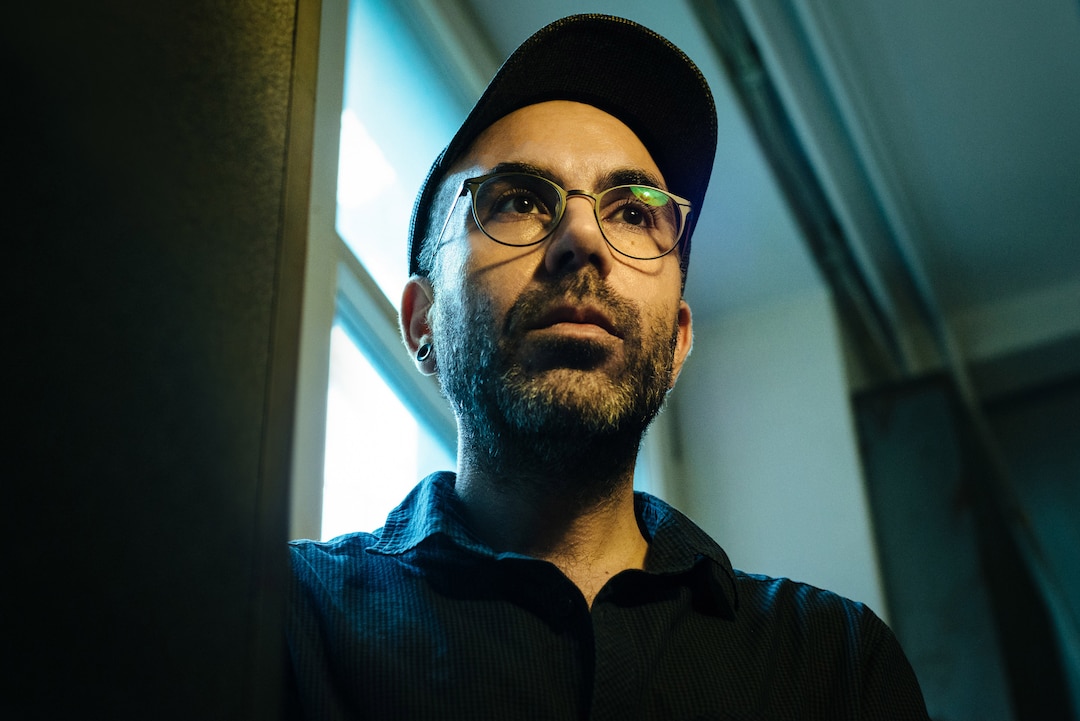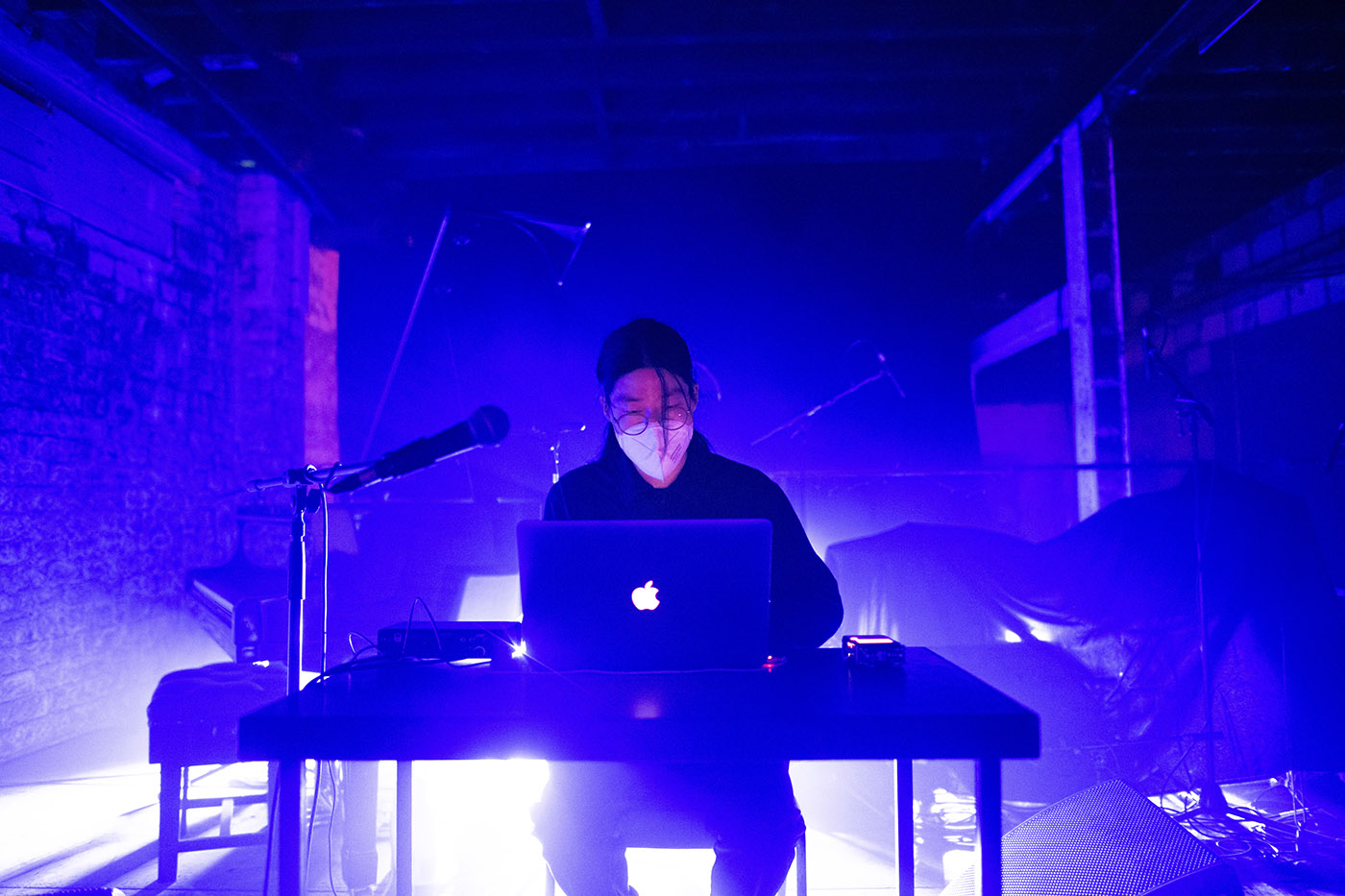Subversive Strategies in Sound and Music
Subversive Strategies in Sound and Music
Rashad creates some of the most intriguing synthetic music today, its sonic qualities a manifestation of specific, historically aware communist politics.
Most writing on his ground-breaking releases, like Traditional Music of Notional Species Vol. I & Vol. II focus on the primacy of experiencing them, on what you can directly hear, and how that feels different from other synthetic music: on the bypassing of melody, harmony and meter, of microtonal spaces between sounds or their complex relationships and structures, on mood. Or it focuses on assumptions—about listening, or fidelity—made due to Rashad’s day job (he’s the premiere mastering engineer in Europe, and has undoubtedly had a hand in how much of your favourite music sounds).
This is a chance to not (only) talk about that stuff, but to understand the political and conceptual richness to Rashad’s compositional approach, that extends far beyond any primary listening experience.
Fascinated by sonic fiction, what we end up hearing are the sonified renderings of narratives or character interactions that Rashad writes. Narratives are drawn from his political commitments (communism) and his interest in historical events, or of historical contexts such as: the Shining Path Communist Party of Peru, Syrian migration, the Red Army Factions insistence on being tried as prisoners of war, or the choral properties of texts written by the SPK (sozialistisches patienten kollektiv). The result reflect real events by mimicking their representation or representing them in a hyperreal way, breaking through conventional forms of reception by rendering them more abstract. How do these compositional approaches work?
We want to get into how he thinks about auditive phenomena or what we conceive as causality in sound, and how much of non-causal sonic structures around us slip our attention. We want to hear about how he might compose a piece about “the brute implications of revolutionary dialectics and the challenges these carry to the modernist economy of emotions and individual entitlement…..the confrontation and transcendence of the individual pursuit of happiness.” And if we do talk about his day job, maybe we’re more interested in his labour ethics, and what it means to work within a service industry, while also being an artist within the realm of social production that industry commodifies.
Two articles give a really great insight into Rashad’s thinking: this interview with Hanna Bächer and this great review in 4 Columns by Reinaldo Laddaga.
Rashad will be in conversation with Sunik Kim, one of our favourite writers and thinkers about synthetic music and its political valences. For some recent examples, check out these incredible essays:
Proletariat of a Cursed Colony: The Kanto Massacre as Perverse Logic of Capital, for bellona magazine, in which Sunik regrounds the Kanto massacre (where over 6000 Koreans were slaughtered by Japanese police/vigilantes after the great Kanto earthquake of 1923) in its political-economic foundation from the perspective of the Korean migrant worker as relative surplus population.
The Dark Filter of Sound: Timestretching, Eroticism and Reification, in which they discuss the trans/homoerotics of the “timestretch” and its potential to restore the connection between artwork and the world, in the work of Barry Truax, Dillinja, Black Electric, Jana Rush, Chantal Akerman, Jacques Rivette, Abel Ferrara, Marcel Proust and Virginia Woolf.
Join Rashad Becker and Sunik Kim for their live performances on Sunday 17th November.
The music programme at Episode 11 has emerged as a collaboration with the UK’s best experimental music festival, Counterflows.
ReadBio
Rashad Becker published his debut album Traditional Music of Notional Species Vol. I on PAN, in 2013 and Vol II in 2016. He describes the LP as the anthropology of a fictive population influenced by numerous sources and sounds free from one predominant aesthetic idea. After emigrating from Syria to Europe in his youth, in Berlin Becker began experimenting with sounds in empty buildings and their spatialization. He presented his ideas, among other things, in the form of sound installations. As sound engineer, he also participated in several theater productions and art works. As a musician he has collaborated with the likes of Eli Keszler, Moritz von Oswald, Okkyung Lee, Andre Vida, Ashley Paul and Valerio Tricoli, and more. As a mastering engineer at Basic Channel’s Dubplates & Mastering studio, he put the finishing touches on over 1,200 of your favourite techno, dub, and house records. He now runs his own mastering studio, Clunk.
Sunik Kim is a musician, writer and filmmaker currently based in Los Angeles. Sunik’s music is often described as “a frenzied electronic orchestra that sits somewhere in between free jazz, noise, and Korean shamanic music.” Their writing on subjects ranging from Korean communism to Conlon Nancarrow has been featured in The Wire Magazine, Pitchfork, Bandcamp Daily, Tone Glow and elsewhere. Their latest album, Tears of Rage, was released on Seoul-based label Rope Editions in 2024.
Access
Live Captions
Live Stream
See general Access information for Episode 11: To End the World As We Know It event
Artists

Rashad Becker

